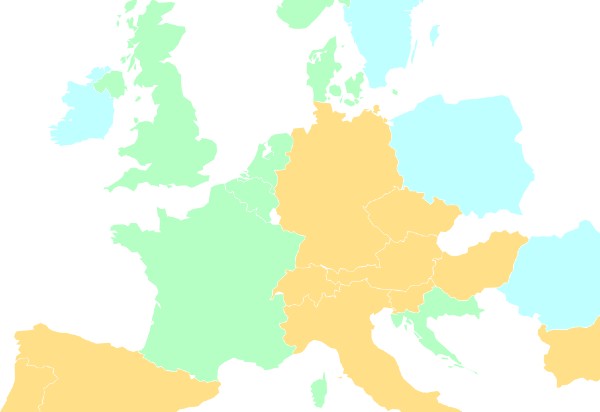A landmark case against Mercer Superannuation over alleged "greenwashing" in Australia has shone a spotlight on the lack of transparency and potential pitfalls lying in wait for environmentally and socially conscious investors.
But Morningstar ESG analyst Erica Hall says there are steps investors can take to distinguish greenwashing from companies with a genuine environmental, social, and governance (ESG) focus.
Civil penalty proceedings launched by the Australian Securities and Investment Commission (ASIC) on Tuesday allege Mercer included "misleading statements" on its website about seven "Sustainable Plus" investment options.
ASIC says these statements claimed to exclude investments in companies with carbon intensive operations, or those involved in alcohol production or gambling.
However, the corporate watchdog alleges the Sustainable Plus options has investments in fossil fuel producers like Whitehaven Coal and BHP, gambling companies like Tabcorp and Crown as well as alcohol producers such as Heineken and Treasury Wine Estates.
ASIC deputy chair Sarah Court says the first-of-its-kind case reflects continuing efforts to ensure sustainability-related claims made by financial institutions are accurate.
Responding to the allegations, a spokesperson for Mercer told AAP the company was continuing to carefully consider ASIC's concerns but declined to comment further.
Hall welcomes the launch of Australia’s first "greenwashing" court case and commends the watchdog for being on the front foot in the battle against the practice, which can leave investors with misallocated capital and unknown exposures.
"If you're investing in something that is purporting to be green, then you want to have the confidence that it is delivering to those claims," Hall says.
Australia’s Transparency Issue
The case highlights a broader issue of fund transparency and accountability in Australia, which Hall says can leave investors blind to their true holdings.
Unlike in other developed countries, managed funds in Australia aren’t legally required to disclose what’s in their portfolio to the public, or their investors.
While superfunds are required to disclose, and some fund managers choose to self-report, the lack of regulation is keeping Australia out of step with the rest of the investment world, according to Hall.
The lack of transparency in Australian investment funds has been highlighted during the Ukraine war, which left Australian ESG-conscious investors unsure of their exposure to Russian assets in their portfolios.
"It just makes no sense, in a sophisticated, global market like Australia where we have incredible access to data, to not share that with the end investor," she says.
Exacerbating the issue, Hall says, is ambiguity over how "green" investments are defined.
"There isn’t any regulation or agreed framework for what constitutes a green investment and that lends itself to a certain level of ambiguity," Hall says.
The Crackdown
To date, ASIC has issued more than $140,000 of infringement notices to companies and funds in response to concerns about alleged greenwashing, including Diversa Trustees and Black Mountain Energy.
Last year, Tlou Energy was fined $53,280 for, in part, claiming in ASX announcements that the electricity it produced was carbon neutral.
The charges followed a report by ASIC and other federal regulators outlining a renewed effort to combat false or misleading claims about environmental, social or governance credentials in the financial sector.
The increased pressure from regulators has prompted a noticeable change in industry language, according to Hall, who says companies are more wary of "being on the hook" to deliver on green promises.
"The language around the green credentials has been softening. We've definitely seen in recent times, some asset managers and superannuation funds walk away from their involvement in organisations which require certain green commitments."
Following the ASIC report, Vanguard Investments Australia chose to self-report a gap in an exclusion policy over tobacco investments and was issued with an infringement notice.
Hall says in the case of Vanguard, the screening issue did not present a difference in the underlying portfolio – and therefore didn’t impact investors – but says the notice was an important point in the growing "greenwashing" debate.
"It was an opportunity for ASIC to really make a stance to say 'we're taking this seriously. You're all on notice. Clean up your act or you'll be next'," Hall says.
It comes as the Australian Competition and Consumer Commission on Thursday announced a crackdown on businesses making false claims about their environmental or sustainable practices.
The ACCC says an internet sweep found more than half of the businesses reviewed were identified as having made 'concerning' claims about their environmental credentials, particularly in the cosmetic, clothing and footwear and food and drink sectors.
How to Avoid 'Greenwashed' Funds
Despite the lack of transparency in some ESG funds, Hall says there are steps investors can take to avoid falling for unscrupulous environmental claims.
Most importantly, she stresses the need for investors not to simply take the word of marketing materials and instead "look under the hood" of all potential ESG investment vehicles.
"You need to really understand the investment philosophy and approach. What are the objectives of the fund?" she says.
"What are they trying to achieve? So that there's alignment of values because sometimes 'greenwashing' can just be misunderstanding what it is you've bought and the fund manager hasn't done anything wrong."
For investors wanting a deeper look into their ESG portfolio holdings, Hall also pointed to data and ratings provided through Morningstar and Sustainalytics.
These rankings include a ESG risk rating, low-carbon designation and ESG commitment level, which is a qualitative assessment of a fund’s ESG philosophy and approach.
"It’s a pretty thorough process and all those metrics combined can give you a pretty good sense of the green credentials because not all are created equal."
 5 High-Yielding Stocks With a Renewable Energy Tilt
5 High-Yielding Stocks With a Renewable Energy Tilt
:quality(80)/cloudfront-us-east-1.images.arcpublishing.com/morningstar/Q7DQFQYMEZD7HIR6KC5R42XEDI.png) Portfolios With Low ESG Risk Outperform in Times of Crisis
Portfolios With Low ESG Risk Outperform in Times of Crisis
 Are FTSE Mining Companies Cheap Right Now?
Are FTSE Mining Companies Cheap Right Now?
 Advice for George Osborne and Stock Market Regrets
Advice for George Osborne and Stock Market Regrets
 How to Find Solid Dividend-Paying Stocks
How to Find Solid Dividend-Paying Stocks
 10 Top-Performing Funds in the UK
10 Top-Performing Funds in the UK
 Fund Research: Europe’s Shining Stars
Fund Research: Europe’s Shining Stars
 NatWest Shares Up as Profits Beat Expectations
NatWest Shares Up as Profits Beat Expectations
 After Earnings, Is Netflix Stock a Buy, a Sell, or Fairly Valued?
After Earnings, Is Netflix Stock a Buy, a Sell, or Fairly Valued?
 Going into Earnings, is Apple Stock a Buy, Sell, or Hold?
Going into Earnings, is Apple Stock a Buy, Sell, or Hold?
 Unilever Earnings: Growth in a Challenging Market
Unilever Earnings: Growth in a Challenging Market
 AstraZeneca Earnings: Steady Outlook but Growth Could Slow
AstraZeneca Earnings: Steady Outlook but Growth Could Slow
















